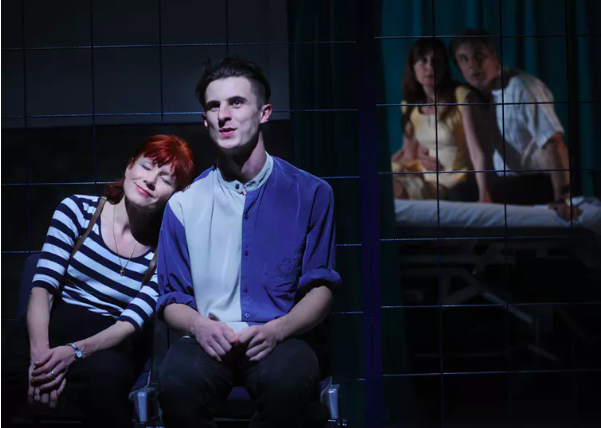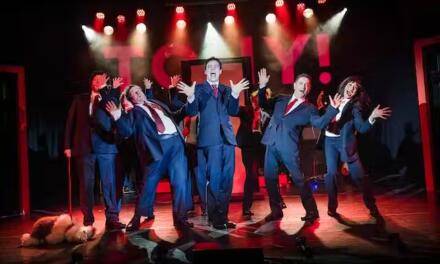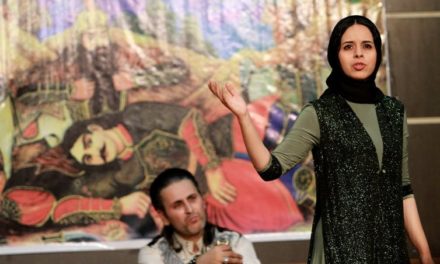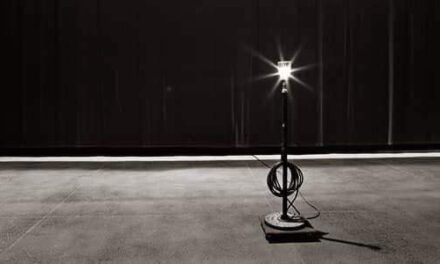The play Jurassica, currently being performed at St. Kilda Theatre in Melbourne, begins with “the rumble of a dinosaur’s steps.”
We soon realize, however, that no T-Rex is going to appear in front of us and this isn’t a play about prehistoric animals. Instead, Jurassica tells the story of Ralph and Sara, Italian immigrants who left Tuscany in the 1950s as part of the “populate or perish” scheme and built a new life in Australia.
Written by award-winning playwright Dan Giovannoni, it follows the couple’s son Ichlis and their 20-year-old grandson, Luca. There is also Kaja, an interpreter who fled war-torn Belgrade in the 1990s, who is called in to help Luca reconnect with his grandfather after he suffers a stroke.
Luca speaks English and almost no Italian. Unlike his grandparents, he’s not overwhelmed by the challenges of integration. He doesn’t face the dilemmas of cultural disorientation endured by his father either. As with other third-generation immigrants, he is confronted with the choice to maintain or forget his ethnic heritage.
Ralph, as a dinosaur, speaks incorrect English and embarrasses his son and grandson with his outdated views. Yet he is the keeper of family memories and stories that, when he dies, will vanish.
Interlacing past and present, Jurassica is a cross-generational exploration of migration, displacement, alienation and the search for home. It is a humorous portrait of an Italian-Australian family where three generations of men confront each other with their fears and uncertainties.
Dinosaur footsteps, we’re told, as they recur throughout the play, are the sound of
Your our entire past flashing before your eyes.
Stories of Italian Migration on Stage
Migration was a frequently explored theme both in repertoire and in innovative theatrical performance in Australia in the 1980s. The stage, in these works, became a shared space in which themes of alienation and discoveries of other selves and possibilities could be explored.
A respectable presence of works (in Italian, dialect, or mixed language) were also devoted to the existential problems faced by Italian immigrants. Plays such as Windows by Pino Bosi (at the Stage Company of Adelaide in 1978), or Victoria Market (Genesis of a Myth): A Three Act Play (1981) and Villaggio Paradiso (1983) by Nino Randazzo, dealt with first-generation immigrants’ nostalgia, alienation, difficult parental relationships, communication problems, and with the Italian stereotypes among Australians.
The generational gap and bilingualism were predominantly tackled by the second generation as in Tony Giurissevich’s Mogli e buoi dai paesi tuoi (1981), in the works by Teresa Crea and John Bono, and in the projects by Tania Mastroianni such as Emma (1998) and Italian Stories (1999), just to mention a few.
It is, however, the work of the professional company Doppio Teatro, created in 1983 by Teresa Crea and Christopher Bell, that leaves a significant mark in Italian immigrant theatre.
By using three languages – English, Italian, and a synthetic migrant dialect it called “Emigrante” – Doppio Teatro explored, in particular, the impact of Australia’s assimilationist propaganda on the migrant’s self-concept.
Fear of language loss and identity, relationship across generations and the traumatic experience of immigrants revisiting their former homeland where covered in the successful Un Pugno Di Terra (A Fistful Of Earth), in 1985 and Ricordi (Memories) in 1989.
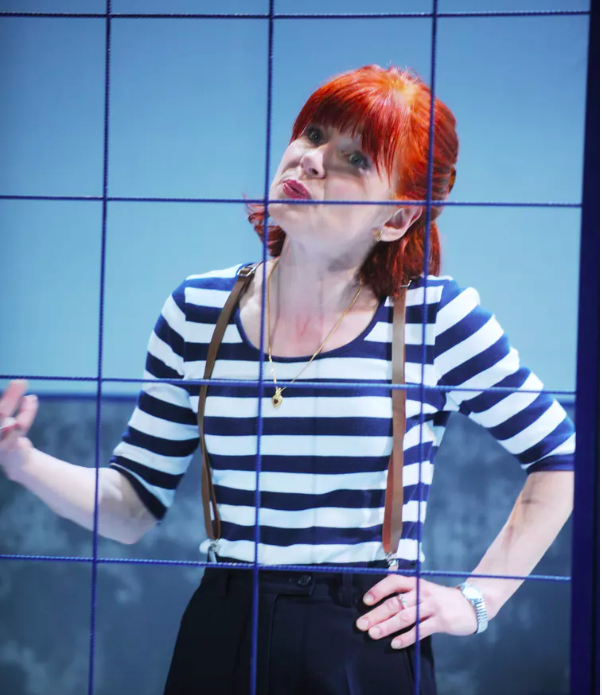
Olka Makeeva in Jurassica. Jodie Hutchinson.
The latter explored, similarly to Jurassica, the processes of cultural change affecting three generations of migrant Italian women. Doppio Teatro continued to represent the histories, cultural particularities, and immigrant experiences in a sophisticated and highly professional manner throughout the 1990s.
Looking Back in Order to Look Forward
Jurassica is, thus, the expression of a generation with mixed cultural background feeling a sense of disconnect with their heritage and their grandparents with whom they do not really share a language or aspects of their culture anymore.
Paris Herbert-Taylor’s Concrete Moments (at the Italian Forum Cultural Centre for the 2011 The Sydney Fringe) and the amateur one-act play A Different Telling by the young Leisa Whyte at the Museo Italiano, Co.As.It (Melbourne) in September this year, are other examples of recent attempts of young playwrights to understand family past and roots.
They also look inside the hardships people go through in their transition from one place, culture, and language to another. It is certainly a desire for a continuity with and a fear of loss of a distant past. At the same time it is a recognition of migrant experience as part of a more generally human condition which, in one way or the other, we all live.
The past, with its low rumbles, heavy footsteps returns periodically to remind us of our roots and hybrid identities, or, in Ralph’s words:
Maybe really is dinosauro in a cupboard, you never bloody look inside, how you know?
This post originally appeared on The Conversation on October 27, 2015, and has been reposted with permission.
This post was written by the author in their personal capacity.The opinions expressed in this article are the author’s own and do not reflect the view of The Theatre Times, their staff or collaborators.
This post was written by Giorgia Alu.
The views expressed here belong to the author and do not necessarily reflect our views and opinions.

